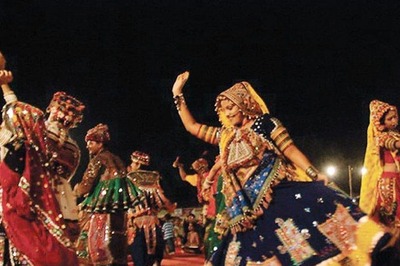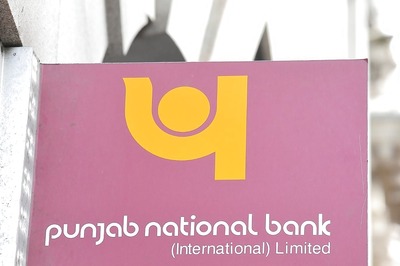
views
Geneva: Global health officials said on Thursday that ridding the world of polio is still possible, but will take at least another year.
The World Health Organisation (WHO) and its partners had hoped to eradicate the disease globally by the end of 2005, but missed that target largely because hard-line Islamic clerics in northern Nigeria led an immunisation boycott in 2003.
Now, it is unclear whether the 2007 eradication deadline can be met with
Afghanistan, India, Nigeria and Pakistan still having polio cases in certain areas.
WHO's technical advisory panel on polio eradication said these countries will take more than 12 months to stamp out the virus.
"All these countries can eradicate polio," chairman of the advisory panel, Steve Cochi said.
However, he added, "Success in these areas clearly depends on political will."
Cochi said that an improved polio vaccine in use since last year and faster laboratory processes should enable the four remaining countries to eliminate the disease if they make sure that all children get vaccinated.
The Nigerian vaccine boycott — motivated on claims that the polio vaccine was part of a US-led plot to render Nigeria's Muslims infertile or infect them with AIDS — was blamed for causing an outbreak that spread the disease across Africa, the Middle East and Asia, re-infecting 25 countries between 2003 and 2006.
Vaccination programs began again in Nigeria in July 2004 after local officials ended the 11-month boycott. But the delay effectively set global eradication efforts back at least several years.
This spread of polio has left 1,500 children paralysed and caused a cost of $450 million for emergency activities, P Ndumbe of the Center for the Study and Control of Communicable Diseases said.
"We are very concerned about the risk of further international spread of polio," he said, adding, "The risk of importation is in fact higher than ever."
India has had 360 polio cases this year so far, compared with 37 for the same period last year and Nigeria has reported 888 cases compared with 489 for the same period last year.
Cochi said that Nigeria still faces a setback because of the 2003 boycott. Fighting in Afghanistan and Pakistan has kept health workers from reaching all children in rural areas, he added.
However, "countries where polio still exists are extremely committed to getting this job done," said David Heymann, the WHO Director-General's representative for polio eradication.
Heymann said that although many health experts were questioning the feasibility of polio eradication, the world's global body would not change its strategy.
"Countries don't want to stop this program," he said adding, "Donors are still with us.”
The panel members praised Saudi Arabia's initiative to request any person traveling into the country for the Muslim pilgrimage be vaccinated against polio.
He also welcomed Afghan President Hamid Karzai's decision to directly oversee polio vaccinations.
Robert Scott from Rotary International, a major funder of the program, said he was optimistic they would get the money to fill the current $50 million (funding gap as well as the $490 million needed for next year.
"We are close to the finishing line and we anticipate victory," Heymann said.




















Comments
0 comment